Skroutz Buyers Protection
VulgataCode: 13404718
- Author: Jacques Lacan
- Publisher: Bibliotheque
- Μορφή: Soft Cover
- Έτος έκδοσης: 2017
- Αριθμός σελίδων: 36
- Κωδικός ISBN-13: 9786185257224
- Διαστάσεις: 15×19
Jacques Lacan
Similar products

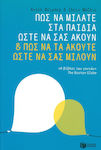 Top rated
Top ratedPsychology Books
Πως να μιλάτε στα παιδιά σας ώστε να σας ακούν και πως να τα ακούτε ώστε να σας μιλούν
Ad from SilverProductsAdded
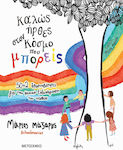
Psychology Books
Καλώς Ήρθες στον Κόσμο που Μπορείς, 50+2 Activities for the Mental Empowerment of the Child
Ad from MykyklosAdded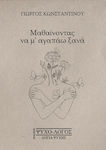
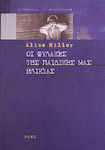
Psychology Books
Οι φυλακές της παιδικής μας ηλικίας ή Το δράμα του προικισμένου παιδιού
Ad from GoldenbooksAdded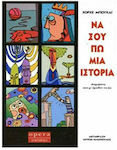 Top rated
Top rated

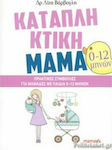
Psychology Books
Καταπληκτική Μαμά, Practical tips for moms with children 0-12 months
Ad from Buy the bookAdded Top rated
Top rated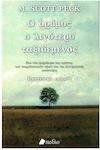
Psychology Books
Ο δρόμος ο λιγότερο ταξιδεμένος, A new psychology for love, traditional values and spiritual growth
Ad from BookmaniaShopAdded
All shops
Prices are calculated for:Luxembourg, Other Payment Options
- 5,57 €
- 4,77 €
- 5,57 €
Description
Bulgata or Vulgata is the Latin translation of the Holy Scriptures made at the end of the 4th century AD by Jerome at the command of Pope Damasus I and adopted by the Roman Catholic Church (its international abbreviation is "Vg").
With the same goal, that is, a kind of "popularization" of Lacanian thought in order to make it more accessible and understandable, the author of this work offers the reader a vulgata editio (a "common" edition or for the "non-specialized public"). However, the "Vulgata" is not a summary text-guide for a quick overview of Jacques Lacan's thought. It is an associative deposition and an attempt to offer the reader something from the establishment of the session, which ultimately is very close to poetic discourse.
Lacan found the truth of speech in every utterance, whether pathological, philosophical, or mainly Freudian. He read Freud and his bibliographic references, like Plotinus to Plato, with the faith of discipleship. So his endeavor is not so revolutionary. It is rooted in the history of philosophy. It's just that behind every philosophy, there is a religion, and behind every religion, there is a practice of its secrets.
From this perspective, free association is a way to seek both the root and the formation of language and thought in an interpretive parallel. The psychoanalyst, for the Lacanians, is the rag in the whole process.
And, as Leucius Basilios points out in his introduction: "Meteoric fragments of a thought that in the unfolding of the seminars became once recognizable residues even as paradoxes with its baroque language. We do not claim from the psychoanalysts the rendering of the text, on the contrary, we turn to their readers who will want to become competent. An open work that brings news from the most extreme borders of speech. That is, at the borders with poetic expression."
Specifications
- Genre
- Psychoanalysis
- Language
- Greek
- Format
- Soft Cover
- Number of Pages
- 36
- Publication Date
- 2017
- Dimensions
- 15x19 cm
Important information
Specifications are collected from official manufacturer websites. Please verify the specifications before proceeding with your final purchase. If you notice any problem you can report it here.





















































